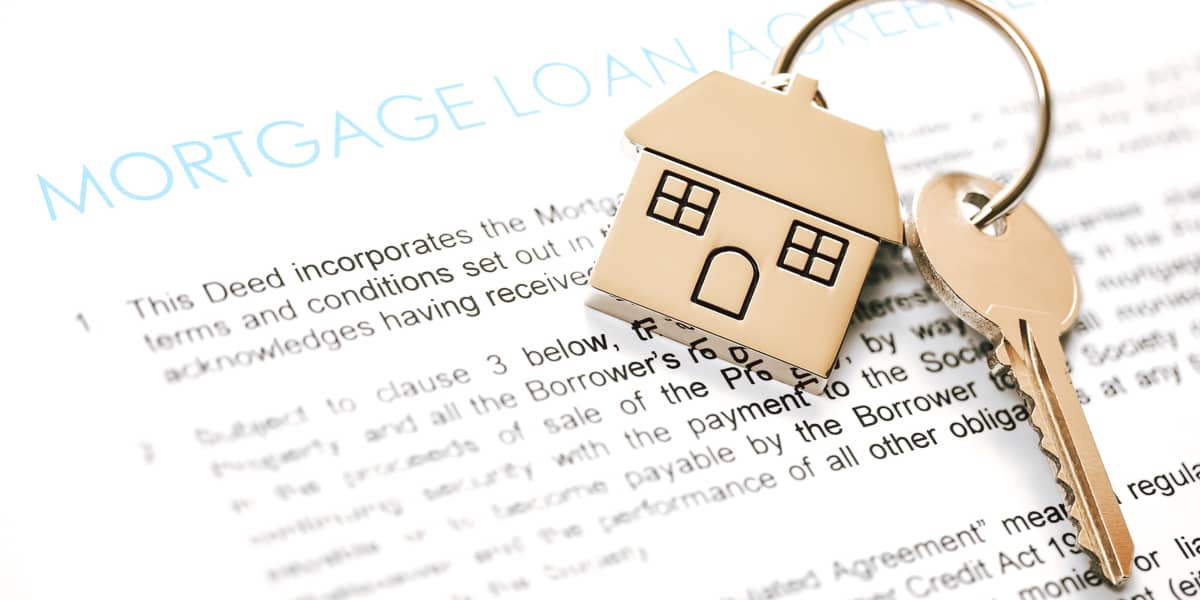The 5 Biggest Mistakes Divorcing Homeowners Make – and How to Avoid Them

Divorce is an emotional and financial crossroads, and one of the most significant decisions divorcing spouses face is what to do with the marital home. For many, staying in the home feels like the right choice – especially for those with children who want to maintain stability. But is it truly the best financial decision, or is it an emotional choice that could lead to long-term hardship?
As a Divorce Mortgage Specialist, I’ve worked with countless divorcing homeowners who regret keeping the house because they didn’t fully understand the financial impact. If you’re navigating divorce and trying to determine your next housing step, avoid these five costly mistakes that can put your financial future at risk.
1. Keeping the home without understanding the full financial picture
One of the biggest mistakes divorcing spouses make is assuming they can afford the home without fully assessing the financial implications. Divorce often means transitioning from a dual-income household to a single income, and that shift brings significant financial challenges.
Before deciding to keep the home, ask yourself:
- Can I afford to refinance the mortgage in my name? Many divorce settlements require removing the ex-spouse from the loan, which means qualifying for a new mortgage on your own.
- Am I prepared for ongoing costs? Property taxes, homeowner’s insurance, and utility bills often increase over time.
- Do I have enough savings for maintenance and repairs? Unexpected expenses—like a broken HVAC system or roof repair—can become overwhelming.
📌 What I’ve Seen: Many people assume child support or spousal maintenance (alimony) will cover the mortgage, only to find out that lenders may not count these payments as qualifying income. Without proper planning, keeping the home can quickly turn into a financial burden instead of a security net.
2. Letting emotional attachment drive the decision
For many, the marital home represents security, stability, and a lifetime of memories. This emotional connection can cloud judgment, leading divorcing spouses to fight to stay in the home – even when it’s not in their best financial interest.
Before making a decision, consider:
- Does this home bring me peace, or does it hold painful memories?
- Will staying keep financial ties to my ex-spouse?
- Would downsizing or relocating offer a stronger financial future?
Divorce presents an opportunity for a fresh start. Sometimes, holding onto the home keeps people stuck in the past rather than moving forward with confidence.
📌 What I’ve Seen: Many divorcing homeowners realize too late that staying in the home delays their emotional and financial recovery, making it harder to embrace their new chapter.
3. Assuming you can simply take over the mortgage
A common misconception among divorcing spouses is that they can simply take over the existing mortgage. However, most lenders require the mortgage to be refinanced into the name of the spouse keeping the home.
This process comes with strict lending qualifications, including:
- Debt-to-income ratio requirements: Your new single income must meet lender guidelines.
- Credit score evaluations: Your creditworthiness affects loan approval and interest rates.
- Income verification: Not all sources of income, including child support or alimony, qualify for mortgage approval.
If you don’t qualify for refinancing, you may not be able to keep the home, even if it was included in your divorce settlement.
📌 What I’ve Seen: Many clients assume they’ll automatically be approved for a refinance, only to find out they don’t meet lending requirements—forcing them to sell the home under pressure.
4. Overlooking better housing options
Too often, divorcing spouses focus only on staying in the home without considering better financial alternatives. Instead of asking, “Can I afford to stay?” a more strategic question is, “What is the best financial move for my future?”
Other options to explore:
- Downsizing: A smaller home or condo can provide lower expenses, easier maintenance, and financial freedom.
- Relocating: Moving closer to a support system can reduce costs and create a fresh start.
- Selling the home and splitting the equity: This can provide a stronger financial foundation instead of stretching your budget too thin.
📌 What I’ve Seen: Clients who explore alternative housing options often end up with greater financial security than those who insist on staying in a home they can barely afford.
5. Prioritizing the home over long-term financial stability
The biggest mistake divorcing homeowners make is thinking short-term instead of long-term when deciding whether to keep the home.
If staying in the house means:
- Draining savings
- Struggling to cover monthly expenses
- Sacrificing retirement contributions
- Losing financial flexibility
…it’s time to reconsider whether it’s truly the right decision. Your home should be a foundation for your future, not a financial burden that limits your ability to rebuild your life after divorce.
📌 What I’ve Seen: Many people initially feel relief after keeping the home, only to experience financial regret when unexpected costs start adding up.
So, is keeping the home after divorce a mistake?
It depends.
If you can comfortably afford the mortgage, maintenance, and expenses while still saving for retirement and maintaining financial flexibility, keeping the home may be a great decision.
But if staying in the home puts your financial stability at risk—leading to unnecessary stress, overwhelming costs, or limited future options—it may be time to consider selling and starting fresh.
💡 The Key Takeaway: A home should be a place of security, not a financial anchor that prevents you from moving forward. Taking a strategic, long-term approach to your housing decision after divorce is essential to building financial stability and peace of mind.
Need more help? Schedule a real estate consultation with me here.
FAQs
What is the most common mistake divorcing homeowners make?
Assuming the divorce decree removes a spouse’s name from the mortgage. Both remain liable until refinance or assumption.
Why is it risky to keep a home without refinancing?
If your ex misses payments, your credit is harmed even if you no longer live there. Refinancing or selling is often the only way to sever liability.
What happens if spouses don’t document agreements clearly?
Vague agreements cause disputes over payments, repairs, or equity. Detailed written terms prevent conflict.
Is it a mistake to overestimate what you can afford post-divorce?
Yes. Many underestimate ownership costs on a single income. Taxes, insurance, and repairs can stretch budgets too thin.
Why do homeowners get stuck with tax surprises?
Overlooking capital gains or property tax reassessments leads to unexpected bills. Divorce agreements should plan for taxes.
What role does timing play in avoiding mistakes?
Acting too quickly or waiting too long can cost money. Decisions should align with support orders, credit health, and market conditions.
How to Avoid the Biggest Homeowner Mistakes in Divorce
Confirm mortgage liability
Check whose names are on the mortgage. Both remain liable until refinance or sale.
Decide on refinance, assumption, or sale
Evaluate whether one spouse can refinance or if selling is safer for both.
Write detailed, enforceable terms
Specify payments, refinance or sale deadlines, and equity division to prevent disputes.
Budget realistically for ownership costs
Account for taxes, insurance, utilities, and repairs in your solo budget.
Plan for tax implications
Consider capital gains, reassessments, and how tax benefits or liabilities are shared.
Time your decisions wisely
Coordinate timing with support orders, credit repair, and market conditions to avoid costly mistakes.



